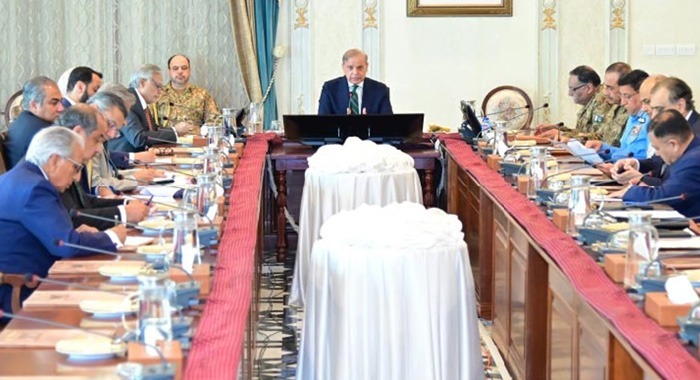
In a decisive move following India’s unilateral actions in the wake of the Pahalgam incident, Prime Minister Shehbaz Sharif chaired a high-level meeting of the National Security Committee (NSC) on Thursday.
The meeting resulted in sweeping diplomatic and strategic countermeasures, reflecting Pakistan’s firm rejection of Indian accusations and policy shifts.
The NSC reviewed the evolving regional security situation and condemned the Indian government’s reaction to the April 22 attack in Indian Illegally Occupied Jammu and Kashmir (IIOJK), in which tourists lost their lives. The committee termed India’s April 23 actions as “unilateral, unjust, politically motivated, extremely irresponsible, and devoid of legal merit
Reaffirming Pakistan’s longstanding position on Kashmir, the NSC underscored the region’s status as an unresolved dispute recognized by numerous UN resolutions. It attributed recurring violence to India’s ongoing state oppression, revocation of Kashmir’s autonomy, demographic engineering, and political marginalization of its Muslim population.
Also Read: India Shuts Down Indus Treaty, Cuts Ties Amid False Flag Accusations
The NSC categorically rejected any attempt to link the Pahalgam attack with Pakistan, calling such claims “frivolous” and “illogical,” especially in the absence of a credible investigation. It further accused India of using such incidents to mask its own human rights abuses in Kashmir and divert attention from its domestic challenges.
Citing concrete proof of Indian-sponsored terrorism in Pakistan, including the high-profile confession of Indian Navy officer Kulbhushan Jadhav, the committee asserted that India’s “victimhood narrative” could no longer conceal its culpability in cross-border terrorism.
Major Decisions Announced:
Indus Waters Treaty Rejection: Pakistan rejected India’s attempt to suspend the Indus Waters Treaty, calling it a binding international agreement. It warned that any disruption of Pakistan’s water rights would be seen as an Act of War, warranting a full-spectrum response.
Review of Bilateral Agreements: All bilateral agreements with India, including the Shimla Agreement, are now under review and may be held in abeyance until India halts actions violating international law and UN resolutions.
Diplomatic Expulsions: Pakistan has declared India’s Defence, Naval, and Air Advisers in Islamabad persona non grata, ordering their departure by April 30. The Indian High Commission’s staff will be reduced to 30.
Border and Airspace Closures: Effective immediately, Pakistan is closing the Wagah border and its airspace to all Indian-owned or operated airlines. Cross-border trade with India is also suspended, including indirect trade via third countries.
Visa Suspensions: All SAARC Visa Exemption Scheme (SVES) visas issued to Indian nationals are now cancelled, except those for Sikh pilgrims. Indian nationals currently in Pakistan under SVES have 48 hours to exit.
The NSC also condemned India’s state-controlled media for fueling warmongering and stoking volatility in the region, urging introspection and responsible journalism.
Firm Warning on National Sovereignty
The committee concluded by asserting Pakistan’s full capability and readiness to defend its sovereignty, citing the country’s swift and measured military response to India’s 2019 Balakot incursion as evidence of its preparedness. Any future misadventure, the NSC warned, would be met with unwavering resolve across all domains of national power.
Reinforcing Pakistan’s commitment to peace, the NSC emphasised that the nation would not compromise on its sovereignty, dignity, or the rights of its people.